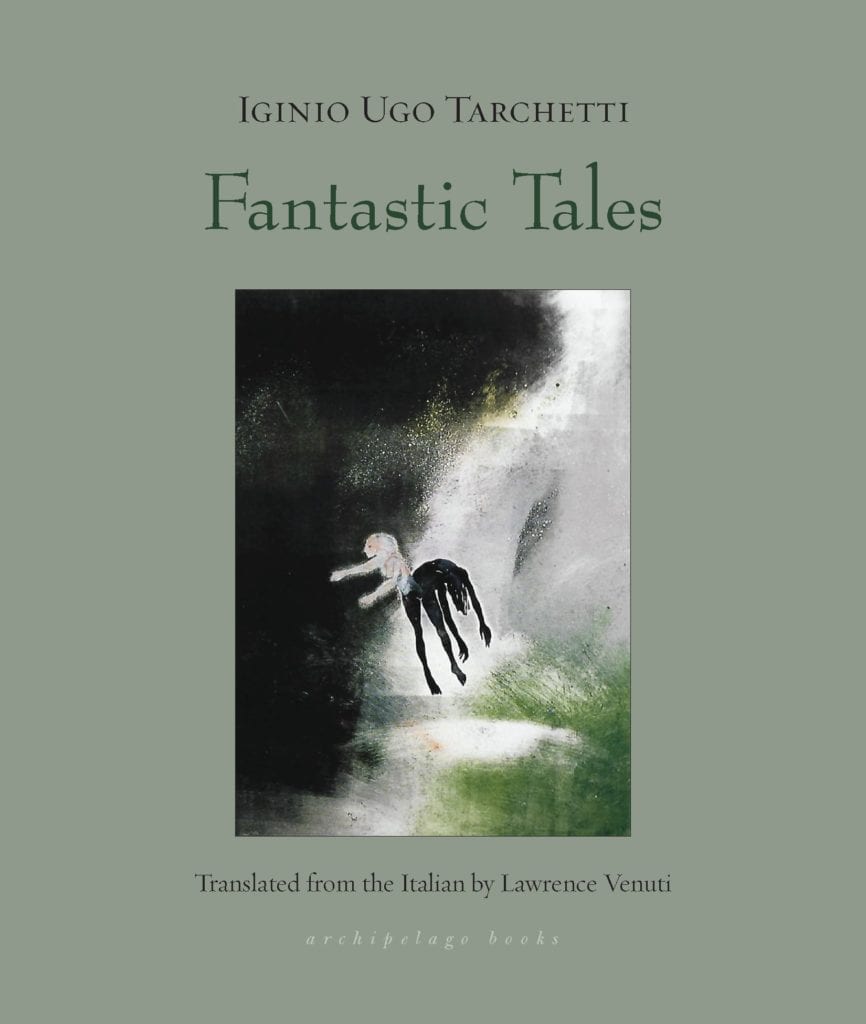Praise
If Poe had set out to write Villiers de l’Isle Adam’s Cruel Tales, the result might be Tarchetti. Beautifully translated by Lawrence Venuti, these capture Tarchetti’s unique and peculiar flavor: his deep Romanticism, his belief in the obsessiveness of desire, and his fascination with the supernatural.
— Brian Evenson
Tarchetti’s beguiling fantasies are triumphs of imagination as well as masterfully told stories. Tarchetti writes with comic bravura and surrealist invention that makes him a cousin, at least, of Kafka and Isak Dinesen.
— Guy Davenport
Tarchetti, who also worked as a translator, was heavily influenced by gothic literature from abroad, favoring the morbid, the metaphysical, the socially and sexually outré . . . remarkably vivid and innovative . . . A collection of nine classic macabre tales, exquisitely translated from the Italian by Venuti.
— Kirkus
Tarchetti occupies a singular place in Italian literature as an antecedent of the great innovators of this century, including Calvino and Pirandello . . . Tarchetti imported his stories from abroad, rewriting works by Mary Shelley, the Alsatian collaborators Emile Erckmann and Louis-Alexandre Chatrian, and Theophile Gautier. While the stories are marvelous in and of themselves, in Venuti’s thoughtful presentation they serve as entree into an equally strange and marvelous literary phenomenon.
— Publishers Weekly
Tarchetti was pretty much the sole practitioner of the Gothic tale in his own language. Until his death in 1869 at the age of 29, he poured out a stream of freakish and fervid stories that made him moderately famous -- and definitively minor. Does I. U. Tarchetti deserve better? Judging from Lawrence Venuti’s elegantly translated collection, Fantastic Tales, the answer is yes.
— James Marcus, The New York Times Book Review
Tarchetti’s project was not only to entertain, but to challenge and subvert. He is at his best when musing on such philosophical matters as time, beauty, morality and truth. His writing blurs the line between life and death, good and evil, beauty and ugliness, male and female . . . Thanks to [Lawrence] Venuti, and this reprint of his excellent edition from 1992, the first and only English translation of Fantastic Tales, he is brought to our attention once more.
— Esmé O'Keeffee, Times Literary Supplement
These stories are enjoyable to read simply for themselves, but they also illustrate a literary culture of notable fascination. The translations flow, yet retain the flavor of their period and are true to the style and personality of their curious, gifted author.
— William Weaver, translator of Italo Calvino and Umberto Eco
Lawrence Venuti’s translation is excellent. The authenticity of the language he uses does not stem only from its faithfulness to the original but also from the fact that Venuti bases his style on that of the (English-speaking) Gothic authors of the nineteenth century. As a result, his prose, albeit flowing, has a slightly archaic feel to it which fits the subject perfectly. Fantastic Tales is an enjoyable read . . . it is also a window onto an as yet under-appreciated era of Italian fiction.
— to the ends of the word
In Lawrence Venuti’s brilliant new translation of nine stories by cult Gothic storyteller Tarchetti, readers will find themselves confronted by the astounding, the uncanny, and the downright disturbing, immersed in the eerie and the macabre, and elbowed in the side by the comical.
— CrimeReads
[Tarchetti] was part of the Scapigliatura movement in Italian literature, a sort of anti-bourgeois, anti-establishment movement influenced by German Romanticism, French bohemians, Baudelaire--and Poe...Tarchetti's tale, while religious, is also anti-clerical, in the understated way that many folktales are...If you like gothic literature and nineteenth-century tales of the uncanny, you will probably enjoy Tarchetti's Fantastic Tales.
— Multo(Ghost)
Fantastic Tales offers a vivid glimpse into another worldview of the gothic... [The tales] that are “just right” are downright chilling in their otherworldly pleasures. They play with themes of memory, mysterious illnesses, and eternal life, utilizing lush and evocative language.
— Kris Waldherr
Tarchetti’s Fantastic Tales is both a fascinating historical document and an engaging collection of pioneering weird fiction. Archipelago Books have done us a service bringing it back into print, in a beautiful edition with gorgeous cover art...[Tarchetti's] stories retain a subversive and exciting power.
— The Fantasy Hive
[Tarchetti] strived and succeeded in creating his own style which, on the one hand, anticipated elements of the great naturalistic novel by Zola and Verga while, on the other hand, pushed the boundaries of expressivity in an experimental direction.
— Enrica Maria Ferrara and Stiliana Milkova, Reading in Translation

